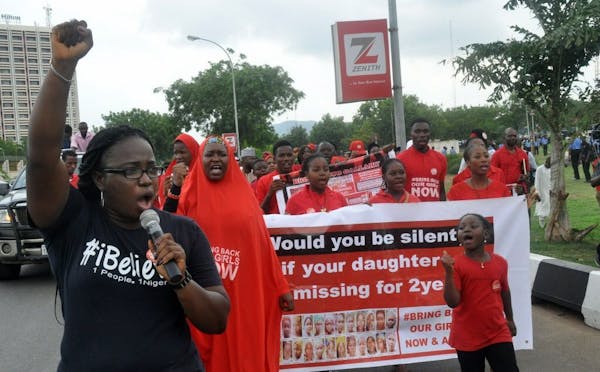DALORI, Nigeria – Zara and her little brother thought they were finally safe.
After being held captive by Boko Haram for months, they made it to a government camp. But instead of a welcome, residents gathered around, badgering them. They beat her 10-year-old brother, convinced that anyone who has spent time among the militants could have become a sympathizer.
Zara, in fact, was hiding a dangerous secret strapped to her back: her baby. The child's father was a Boko Haram fighter who had raped her, but Zara knew the crowd would still doubt her loyalties. "They'll never forget who her father is, just like a leopard never forgets its spots," said Zara, who spun a tale that militants had killed her husband.
In northeastern Nigeria, the years of suffering under Boko Haram have upended the lives of hundreds of thousands of people, stealing something — or everything — from countless families. Now, a suspicion is raging against anyone who has lived alongside the group — even girls who were held hostage, repeatedly raped and left to raise infants with Boko Haram bloodlines.
Much of the anger stems from fear. Boko Haram has used dozens of women and girls — many not even in their teens — as suicide bombers.
But as thousands of freed captives pour into the camps, a rift has developed between two classes of victims: the people who managed to evade the group's clutches, and those who did not. "I will never trust them," said Adamu Isa, a market vendor, referring to anyone who had been held by Boko Haram. "The government should detain them for the rest of their lives."
